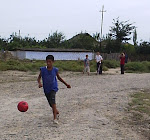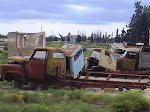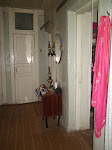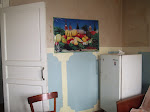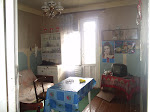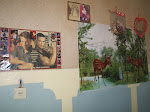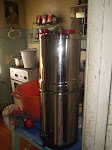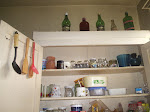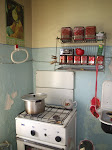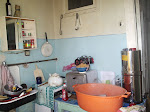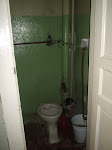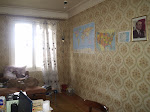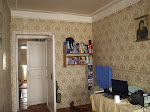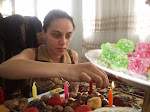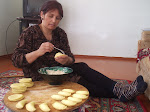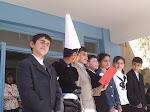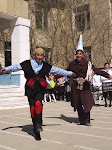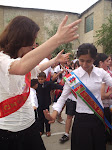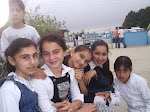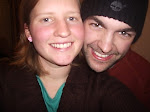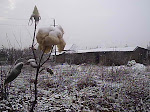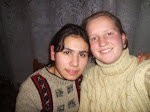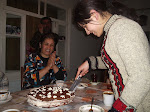7/17/08
I’m plopped underneath what my landlord calls an air conditioner, though I’m not sure what the hell it’s emitting. Air? Maybe. Cool air? Possibly. Grime particles from months—years, possibly—of disuse? Definitely.
The weather here has been unusual. It’s rained off and on, been cloudy and overcast on occasion, and sometimes it’s so hot, sprawled half-naked on my bed, I sweat tears onto literature.
The other day Gizbast laughed, “They say the English girl brought climate from California.” In Sacramento it’s often hotter than this, I’ve since notified neighbors, though in most parts of America there’s escape: air conditioned movie theatres with iced Coca-Cola. In my village, the government shuts off the power at approximately 10 a.m. to 1 p.m., 3 p.m. to 7 p.m. and midnight to 6 a.m., never permitting my freezer time to do its job. Consequently, I drink luke-cold liquid on a 100-degree day.
But there’s a silver lining to this cloudless heat.
Author Hosseini writes about how prior to Soviet arrival Afghanistan was a land of milk and honey, fruits and nuts, men who drank tea on white patios and children who flew hand-made kites, even when it snowed.
Many may be under the impression that Azerbaijan is a vast desert, a stretch of oil machinery between partially green mountains and unpaved roads. There are parts of this country that are like that, though much of the Middle East and then some (whatever you call this part of the world) holds enough vegetation to be split with many African nations.
Purple, yellow, green and red plums, at least that many breeds of cherries, small and large apricots, white figs, tiny strawberries, winter and summer apples, round watermelon, mulberries and blackberries the size of my thumb, pomegranates, and green grapes drape almost every Azerbaijani family’s front yard. These are the crops that make this harsh land gentler.
To save some of this fruit from Azerbaijan’s annual waste, Azeris make jam and “murraba,” a more liquidy and sweeter take (1 cup: 1 cup) of jarred fruit. Since June I have made six large jars of applesauce and cider for winter, and received numerous jars of jam from neighbors and volunteers.
Even so, I can’t eat the fruit or make jam of it before it rots. There is so much juicy vegetation in summer I have had to throw most of what my neighbors give me to the sheep.
At the end of this month I am on leave in Latvia, Lithuania and Poland. The plan was to beat the blazing sun, at its most intense in August. Unfortunately vacationing at this time means I’m missing prime sweet crop life in Azerbaijan. Hopefully they’ll jar me up a few containers of their all-natural jam.
9/7/08
I hope there’s never a tea famine
Three days ago the gas line to my apartments and surrounding houses exploded. As many families do, I don’t have a petch, an extra heating device in case an event like this goes down, or better, the government shuts off the line (like it does in winter when lowly citizens ask for warmth.)
My source of hope would have been the electric stove my landlord snabbed a couple weeks ago. But while I was drinking forbidden beer in Europe he was locking wash buckets, tables and kitchen utensils in the closet adjacent to my vanity mirror.
This apartment came furnished. Trying to be helpful, I think he was clearing out unused furniture and appliances to make room. Unfortunately, I use most of those appliances, the alternative stove among them. I beat the crumbling kitchen wall, yelling profanities about Yusif for taking part of my life away. My neighbor, clipping her husband’s white undershirts to the line, overheard and poked her head onto my porch, “Sasha, I know you are angry. There will be gas soon so we can drink tea.”
Tea is a tremendously important part of this culture. Each tiny cup is served with sugar cubes cut from a heavy block of white sugar and cream-filled Russian chocolates that feel like plastic on the roof of your mouth. After dinner, before dinner, while watching TV, or judging neighbors from their balcony, you can find a native slurping near-boiling teze (fresh) tea. Outside of chai khanas (tea houses) in 120 degree temps, Azerbaijanis play nard over tiny glasses filled with ginger-colored liquid. It is a cure for just about everything, from a headache (which couldn’t come from too much caffeine…) to an ear infection.
So the fact that I can’t eat isn’t my neighbor’s concern but rather the fact that I can’t brew Beta black. “What will you do?” I don’t know, I just don’t know.
9/12/08 ONE YEAR TILL FLIGHT TO SFO
9/17
The Patriotic Act
Fresh from vacationing in the Baltics, I slip off my shoes and into oversized slippers. To watch my toes before they trip on the dip after the welcome mat, I flip on the light switch in the musty hallway. No electricity. Throwing off my backpack, less heavy than it was when I left (I lose so many things travelling), I shuffle to the kitchen to cut veges for eggplant and chicken curry. No gas. Though I have adjusted to this diverse lifestyle (sometimes ya have water, sometimes ya don’t!), after a month backpacking Eastern Europe, it is a realization of the 360 more days I must stay in desolate Azerbaijan.
At PC’s mid-service conference for 2008 Volunteers, an American observer for Azerbaijan spoke about elections in October. Five years ago Ilham Aliyev, the current president, took his father’s seat in parliament. Before he took office, there were protests, riots and violence which led to the arrests of several dissenters. Despite public opposition, Ilham was elected by a landslide.
This year Ilham will be reelected. The election observer noted that there will be few protests (more like gatherings of a couple people) and the dissent, if any, will happen indoors. This is because one, Ilham is already president, and he has repaved highways and built schools and such, and two, opposition parties and their candidates aren’t visible in mainstream media. The latter is because of a new law that allows little airtime for candidates to spread their policy views. They say this is to give candidates equal opportunity.
Here’s the thing, I don’t feel moved by this, in large part because American politics needs campaign finance reform too. Like in Azerbaijan, parties and candidates with money have more airtime and media coverage than those without. From George Bush, we hopped almost straight over to his son, Stupid, notwithstanding protests on the legitimacy of his win. And under Stupid, in spite of critical failure in every possible policy sector, roads were repaved and schools were built and such, and so he was voted on for a second term.
Perhaps surprisingly, there are several small parties running for office and of those, nine are boycotting the election. “Why boycott? Why leave a better chance for Ilham to be reelected?” asked one Volunteer. First, because the boycotters know Ilham will win no matter what. Even if another candidate could rise before the election, Ilham has gained the support of the population. Mainly, though, the boycott is an international appeal. Those refusing to participate, demand justice. They want a guarantee of what every infant and aged democracy strives for: a free and fair election.
But my problem is not even this. It’s great that candidates are appealing to the international community, and that the citizens of Azerbaijan want to vote for their current president. What bothers me is that under these conditions, as a Peace Corps Volunteer, I can’t encourage people to vote or to side with the little guys. I have to remain silent, not allowing my opinion to filter into classrooms or even into private homes. We are to stay away from political gatherings and discussions on any level.
Peace Corps is a non-political development organization. To speak poorly of host country politicians is olmaz (forbidden). It could put Peace Corps, its staff and Volunteers at risk. One could lose credibility for dissent or become at odds with their community if they side with an unpopular candidate. For my family’s sake, I don’t want to mention what could happen to a Volunteer in a violent political environment.
That is not to say we can’t talk American politics. I can and do with host country nationals. Our conversations usual involve the idiocy of G.W., how I disagree with so many of his domestic and foreign policy decisions, and how his administration single handedly pulled the U.S.’s GDP from a roughly two trillion dollar surplus to a deficit equaling that, at least. They usually laugh at this until someone asks, “How can you say that about your president?”
But when I say things like this, and things like, “American politics needs campaign finance reform,” I know there’s a difference between America’s campaign finance problem and all 47 African countries’.
I don’t know if you’ve noticed but every blog I write ends on a positive note. It’s not the best thing to do with narrative, but here it’s what I have. I am American, and I don’t think in “It’s not possible,” “The government won’t permit it,” but rather, “I can” and “I will change it.” Whenever the electricity shuts, ironically, I feel more empowered to make change in my own country, where I can call George W. Bush stupid. How can I do that? Because the the American government doesn't have the right to turn off the electricity, and the American Constitution secures me the right to make sure they never will.
Thursday, September 18, 2008
Subscribe to:
Comments (Atom)



